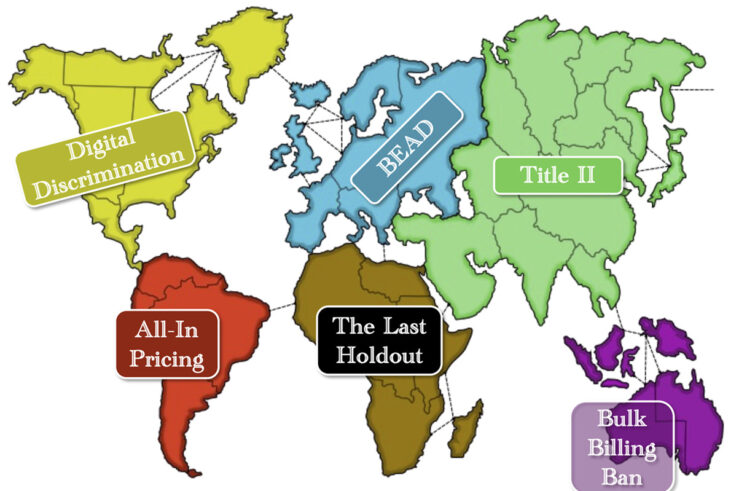Via Ted Frank at Point of Law, the House has overwhelmingly passed a price gouging bill that will not help consumers, but on the bright side, is likely to provide a fresh example for microeconomics instructors teaching the consequences of price controls. The award for economic illiteracy of the week goes to the whole House, but special mention should be made for Joe Barton, Head of the House Energy and Commerce Committee, to whom the WSJ attributes the following words:
“We know price gouging when we see it. . . . We’re here to put the gougers out of business . . . or behind bars.”
Actually, I am hesitant to call Barton’s statement economic illiteracy because it is hard to fathom that anybody actually believes that they “know price gouging when we see it,” or for that matter, that the proposed bill will actually help consumers rather than simply create the impression that legislators are busy doing something to address the “problem.”
I am fond of Larry Ribstein’s concept of “criminalizing agency costs” (see, e.g., here), but what about imposing criminal sanctions for rationally responding to changes in supply conditions? While I am not creative enough to coin a new phrase, it seems obviously economically wrong-headed (much like the criminalization of agency costs) to use criminal sanctions to punish firm’s for increasing prices in response to a reduction in supply. Should firms collude in the wake of a natural disaster, the antitrust laws are plenty sufficient to punish this sort of behavior (see my previous comments here). There is simply no need for a federal price gouging law.
One more point. The text of the bill requires the Federal Trade Commission to define “price gouging” and gives enforcement powers to both state AGs and the FTC. This is particularly interesting in light of the FTC’s published statement regarding the wisdom of such laws. Here are a few highlights:
- “If price gouging laws distort these market signals, markets may not function well and consumers will be worse off. Thus, under these circumstances, sound economic principles and jurisprudence suggest a seller’s independent decision to increase price is — and should be — outside the purview of the law.”
- “Even if Congress outlaws price gouging, the law would be difficult to enforce fairly. The difficulty for station managers, as well as for enforcers, is knowing when the managers have raised price “too much,” as opposed to responding to reduced supply conditions.”
- “The Commission remains persuaded that a federal price gouging law would unnecessarily hurt consumers.
So what possibly explains the adoption of these policies? Posner describes the phenomenon as follows:
“In times of catastrophe, with consumers hurting, the spectacle of sellers benefiting from consumers’ distress, while (it seems) deepening that distress by charging them high prices, is a source of profound resentment, and in a democratic society profound resentments trigger government intervention. Such intervention is nevertheless a profound mistake, and not only from some narrow “economic” perspective that disregards human suffering and distributive justice.”
This seems perfectly in line with Geoff’s comment to my earlier post on PGR’s observing that:
“PGRs are an example of a response to the irresistible force in politics to do something. That they are categorically condemned by people who know enough to condemn them (how’s that for tautology?) is really neither here nor there when the people want action. (Or am I being too cynical?)”




